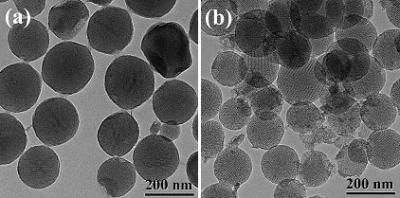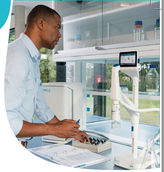Avecia Wins US $71 million Anthrax Vaccines Contract
Advertisement
Avecia has been awarded a US $71.3 million contract to make 3 million doses of a new type of recombinant anthrax vaccine for the US Government's National Institute of Allergy and Infectious diseases (NIAID).
Scheduled for completion by late 2006, the contract will continue anthrax vaccine development efforts for NIAID that were initiated with a contract awarded in 2002 to produce 2,000 doses of the new vaccine for clinical trials. This award is consistent with Avecia's ongoing and successful performance associated with the initial contract.
The new vaccine is intended to provide immunity to inhalation anthrax in three or fewer doses and to protect individuals from anthrax spores, even if the vaccine is given shortly after exposure. It is planned to replace a current vaccine that requires six injections over 18 months.
Production of the new vaccine is based on technology developed by the UK's Defence Science and Technology Laboratory (Dstl), in close co-operation with Avecia, which jointly conceived and engineered the process development and scale-up technologies for large scale, cost-effective GMP manufacture.
In preparing the bid, Avecia has also teamed up with Baxter Healthcare Corporation, already a vaccine supplier to the US government, who will provide regulatory expertise, commercial services and support, as well as fill and finishing and final packaging of this vaccine.
The active part of the newly developed vaccine - which will be used to provide immunity to inhaled anthrax spores - is based on the microbially derived, purified protein rPA (recombinant Protective Antigen). The vaccine uses similar technology to that used for many modern medicines. It is not based on the anthrax organism itself, or any derivative, and vaccine production poses no risk of exposure to the disease itself.
Production of the vaccine for NIAID will comply fully with the US Food and Drug Administration (FDA) requirements, the European Medicines Evaluation Agency (EMEA) and the Medicines and Healthcare products Regulatory Agency (MHRA), which regulates the UK's development, manufacture and sale of all medicinal products.
Most read news
Other news from the department business & finance
These products might interest you

Get the chemical industry in your inbox
By submitting this form you agree that LUMITOS AG will send you the newsletter(s) selected above by email. Your data will not be passed on to third parties. Your data will be stored and processed in accordance with our data protection regulations. LUMITOS may contact you by email for the purpose of advertising or market and opinion surveys. You can revoke your consent at any time without giving reasons to LUMITOS AG, Ernst-Augustin-Str. 2, 12489 Berlin, Germany or by e-mail at revoke@lumitos.com with effect for the future. In addition, each email contains a link to unsubscribe from the corresponding newsletter.



































































